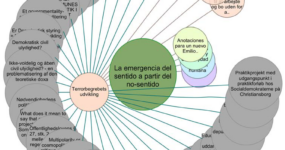 For those of you who read “Step 1: Is your Idea a Business or a Hobby?” (http://mintne.ws/1RmBHr3) in the first article of this seven-part series, you will find this article equally relevant and useful in helping you to progress your idea to the next step.
For those of you who read “Step 1: Is your Idea a Business or a Hobby?” (http://mintne.ws/1RmBHr3) in the first article of this seven-part series, you will find this article equally relevant and useful in helping you to progress your idea to the next step.
We all know the best ideas often stem from real problems we face in our everyday lives. When knowing how frustrating it can be when we experience “a problem” first hand, and cannot find a solution or fix. For some, this emotion compels us to “take action” and go about finding a viable solution. One such example is Airbnb—the rent, room and lodging app recently valued at $25 billion.
Back in 2008, Brian Chesky and Joe Gebbia, the founders of Airbnb, wanted to attend a large conference in San Francisco and were looking for reasonably priced accommodation around the venue. They could not find anything. All hotels and B&Bs were sold out weeks in advance. It was impossible to find anywhere to stay. This was not the first time they had faced this problem and had often ended up missing out on the event. Frustrated by this, Brian and Joe decided to find a solution. They found a spare (unfurnished) room at a home close to the conference venue—which they rented for night at a very affordable price. Since the room was pretty basic and had no furniture, i.e., beds, they carried along their own air beds (hence the name Airbnb).
Brian and Joe realized their problem was a common one. Many struggle to find reasonably priced accommodation near big events and either end up paying extortionate rates, staying far away from the venue or, worse still, have to cancel/resell their tickets. As time passed, Brian and Joe realized Airbnb had a much larger customer market than they ever imagined. The problem they were solving was not just for lodgers, but also for homeowners. Customers found lodging at reasonable rates when and where they chose. And homeowners earned extra income by renting out unused rooms for short-stay lodgers.
Airbnb seized this market need by creating an online marketplace for both lodgers and accommodation providers to trade—which was also a great alternative to overpriced hotels. Their original idea evolved and so did their target market, products and platform. Today, eight years on, it has over 2 million listings and operates in 34,000 cities across 190 nations.
The story of Airbnb provides great insights for any start-up ideator and founder on the principles of idea and customer needs validation.
Remember, your business idea should stem from a problem you really care about solving. Ideally, you should have suffered this problem yourself. As a consequence, the idea and solution you create will be even more relevant and useable.
There are three practical questions to help you validate your customers’ needs.
(Take out time to answer these validation questions—use the notes to help you.)
1. Does my idea/solution really work?
NOTE: Have you tested your idea/solution/product with your target customers? How do they respond to your solution? Have they tried your solution, what do they think? What about your solution makes the problem go away? Does the story of your solution get people excited?
2. Is there a genuine customer need? Do people want to buy your solution?
NOTE: Your problem needs to be “urgent, frustrating and painful” enough for your customer to want to find a solution. Remember—Airbnb solved a problem they faced themselves, and the cost of not solving the problem was too high; hence, Airbnb (as a solution) became a no-brainer for their customers.
Have you conducted a pilot test/market research/focus group with your target customers? Do they love your solution? What are the alternative solutions in the market? Does your solution make it easy to solve the problem for the customer? Is your solution personal and offers choice to the customer?
3.What is the price I should be charging?
NOTE: Have you conducted in-depth customer and market research to understand what price point will drive mass adoption? Who are your competitors and what do they provide? Your pricing model can vary based on your target customer segment and key factors such as culture, human perception, affordability, your brand positioning and values. Are you applying unit economics to understand your costs?
[“source-Livemint”]
| M | T | W | T | F | S | S |
|---|---|---|---|---|---|---|
| 1 | 2 | 3 | 4 | 5 | 6 | |
| 7 | 8 | 9 | 10 | 11 | 12 | 13 |
| 14 | 15 | 16 | 17 | 18 | 19 | 20 |
| 21 | 22 | 23 | 24 | 25 | 26 | 27 |
| 28 | 29 | 30 | 31 | |||



























